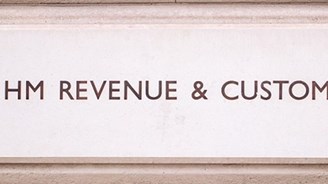Getting ready for the VAT domestic reverse charge for construction services

In order to combat “missing trader” fraud, certain construction supplies made on or after 1 October 2019 will be subject to the reverse charge procedure.
The Construction Industry Scheme (CIS) already implements measures to combat missing trader fraud for income tax purposes. We now have VAT measures that target taxable construction supplies by directing the customer to declare the output tax on behalf of the supplier. This is known as the “reverse charge” and it should prevent the supplier (or subcontractor) from invoicing VAT, receiving VAT from the customer (or contractor), then becoming a “missing trader” without paying the VAT over to HMRC. The reverse charge does not apply to zero rated supplies.
Historically, other supplies such as mobile phones, computer chips and wholesale supplies of gas and electricity have been subject to the reverse charge, which is described in detail in VAT Notice 735 – The VAT Domestic Reverse Charge Procedure.
On 7 June 2019 HMRC published guidance for the construction reverse charge, which answers some frequently asked questions:
Which construction supplies are affected by the reverse charge?
All construction supplies that are currently subject to CIS treatment will be subject to the VAT reverse charge. The guidance provides a list of the supplies that are affected.
Are supplies of materials subject to the VAT reverse charge?
Yes. If materials are provided as part of the construction service, they too will be subject to the VAT reverse charge. This treatment of materials is different to the treatment for CIS, where no CIS deductions are made in respect of the materials element of an invoice.
What about mixed invoices?
If a supply is made that includes both reverse-charge and non-reverse charge elements, the entire supply is subject to the VAT reverse charge.
Which construction supplies are excluded from the VAT reverse charge?
The guidance provides a list of excluded services, which mirrors the list of services excluded from CIS, such as architects’ and surveyors’ fees.
Additionally, construction services supplied to end users will not be subject to the VAT reverse charge. End users will either be consumers or a business customer that does not make a further onward supply of the construction service.
What will the supplier have to do?
In addition to the standard information required on a VAT invoice, the supplier will need to:
- make a note on the invoice to make it clear that the domestic reverse charge applies and that the customer is required to account for the VAT
- clearly state how much VAT is due under the reverse charge, or the rate of VAT if the VAT amount cannot be shown. The VAT should not be included in the amount charged to the customer.
The net value of the sale should be entered in box 6 of the VAT return. No output VAT should be declared in box 1.
What will the customer have to do?
The customer will declare the VAT reverse charge in box 1 of the VAT return, but there is no corresponding net figure to be entered into box 6.
The customer can also reclaim the VAT on the purchase in box 4 of the VAT return, with the corresponding net figure in box 7.
A recorded training session, CIS Reverse Charge will be available online from 30 July 2019.
You can keep your clients updated on the changes to the construction industry with our client briefing or letter. Ordering is easy, simply email marketing.support@mercia-group.co.uk or call 0116 258 1242.



